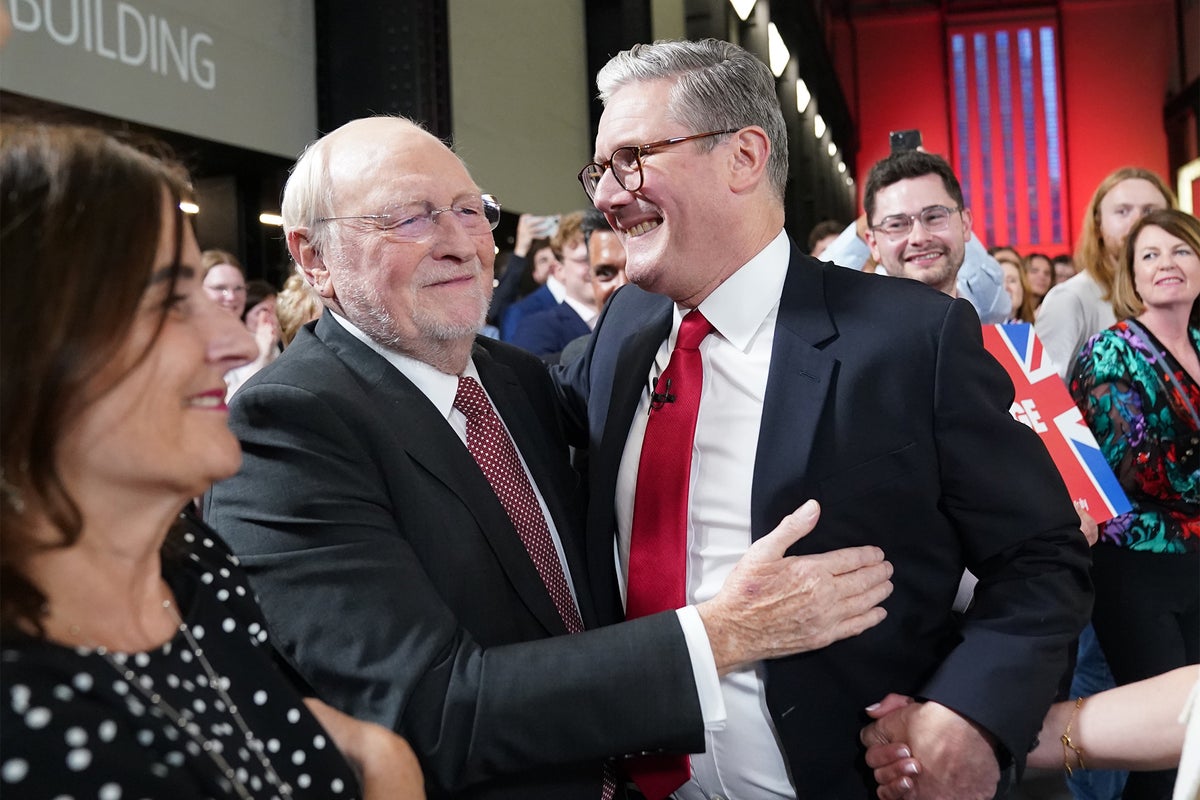Your support helps us to tell the story
From reproductive rights to climate change to Big Tech, The Independent is on the ground when the story is developing. Whether it’s investigating the financials of Elon Musk’s pro-Trump PAC or producing our latest documentary, ‘The A Word’, which shines a light on the American women fighting for reproductive rights, we know how important it is to parse out the facts from the messaging.
At such a critical moment in US history, we need reporters on the ground. Your donation allows us to keep sending journalists to speak to both sides of the story.
The Independent is trusted by Americans across the entire political spectrum. And unlike many other quality news outlets, we choose not to lock Americans out of our reporting and analysis with paywalls. We believe quality journalism should be available to everyone, paid for by those who can afford it.
Your support makes all the difference.Read more
Sir Keir, what have you done? Having climbed down over welfare reform, the prime minister now faces a left-wing with the bit between its teeth. They are in the ascendant alright, and don’t they know it.
The latest to step up to the plate is Lord Kinnock. The former Labour leader says there are “pathways” to raising taxes “that, I think, people are willing to explore and actually would commend themselves to the great majority of the general public.
“They include, for instance, asset taxes in a period in which for the last 20-odd years in the United Kingdom, like quite a lot of other Western economies, earned incomes have stagnated in real terms while asset values have zoomed. They’ve just gone through the roof and they’ve been barely touched.
“Now, you wouldn’t have to touch assets of under £6 million or £7 million, so people’s houses would be secure, obviously. But even by going for an imposition of 2 per cent on asset values above £10 million, say, which is a very big fortune, the Government would be in a position to collect £10 billion or £11 billion a year.”
Kinnock once told the party conference: “I am telling you, no matter how entertaining, how fulfilling to short-term egos – you can’t play politics with people’s jobs and with people’s services or with their homes.” Presumably he did not mean rich people who create those jobs.
Because, make no mistake, he is playing politics with them, with their assets, with their success – and with the people who rely on the wealthy for their incomes, with an Exchequer that also depends on their taxes and their continued faith in Britain.
Unfortunately, due to his status, Kinnock has a following. At least five trade unions have come forward to declare they will lean on Sir Keir Starmer to do what he suggests. Among them is Unison, once the employer of Angela Rayner, who was its most senior elected official in the North-West of England prior to becoming an MP. Christina McAnea, the Unison general secretary, said: “A wealth tax would be a much fairer way of raising revenue to invest in public services and grow the economy.”
Listening to and reading their outpourings you do have to wonder what planet they live on, which bit of a globally connected world, that is seeing countries (including those Western countries Kinnock refers to, which have seen asset values soar and incomes stagnate) falling over themselves to attract foreign investors they do not understand. Those nations know their money generates prosperity and jobs. Which is another way of saying economic growth.
The evidence of rich folks voting with their feet and departing these shores is mounting by the day. Mostly they are non-doms, already a Labour target, but by no means all. One London restaurateur is nursing a 30 per cent drop in takings since Rachel Reeves delivered her first Budget. He says that is not the result of smaller plates and weight-conscious diners eating less thanks to Ozempic, but them having gone, leaving empty tables in their wake.
Hers was the Budget that saw scrapping of non-doms’ favourable tax breaks, VAT on private schools, air transport duty on private jets, inheritance tax for the most valuable farms and of course, an increase in employers’ National Insurance contributions.
There is a pattern here, to which Kinnock and his acolytes would now like to add a charge on assets over £10m. It might collect £10bn or so as he claims, but for how long? And what signal does it send to those who have earned their money and paid their dues – only for them to be taxed again?
Kinnock fails to make the connection between the rich and philanthropy. Those charities that help the poor and disadvantaged, organisations that research cures for cancer and other conditions, and the arts and sport… – they would all suffer drops in their donations.
It’s also a London tax, which also adds to its appeal. Nothing beats clobbering the swanky capital inhabitants in their £10m-plus mansions – conveniently ignoring the fact that without many of them, the UK economy would be under water, that London is the country’s investment hub.
Fortunately, there are those in Labour who see sense. Liz Lloyd, a senior No 10 policy adviser, has reportedly questioned whether existing wealth taxes were harming her boss’s mission of growing the economy. Hopefully, Starmer and Reeves will agree with her and not Kinnock and his ilk. For if they wish to give the lie of going “faster and further” in kick-starting the economy, Kinnock’s wealth tax would the best way of achieving it.
The battle lines are being drawn. Starmer must resist. Britain’s economic future depends on it.
